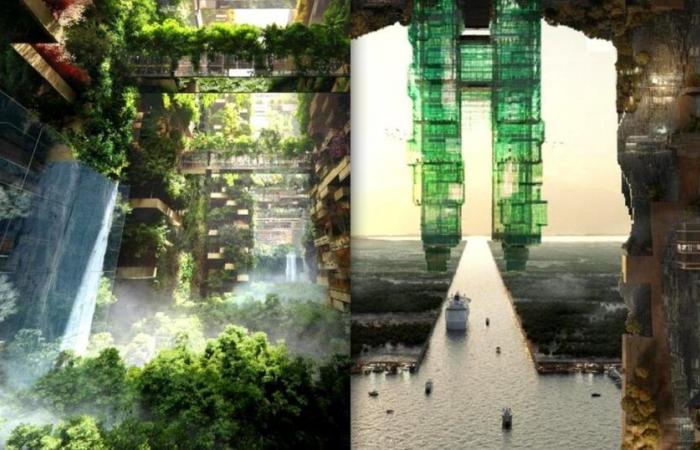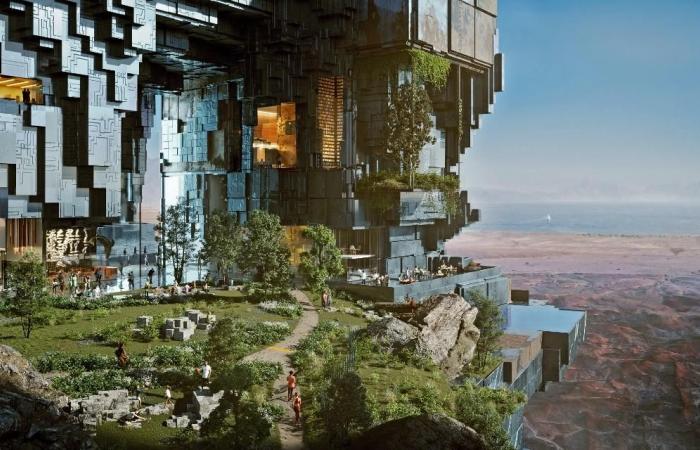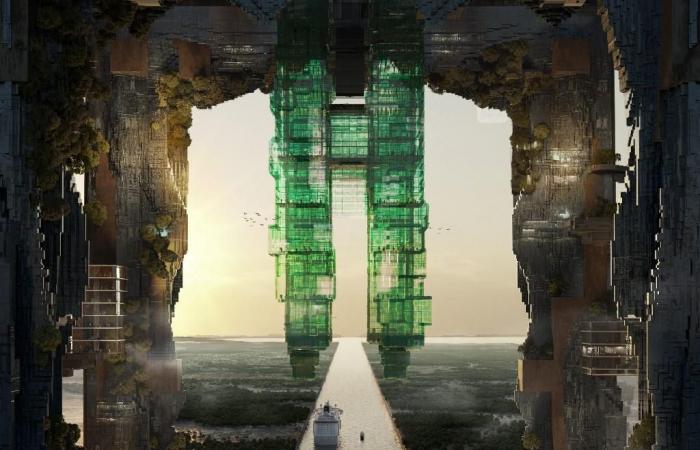Conceived as a city of the future, “Neom” promised to embody an architectural and technological revolution in the heart of the Saudi desert. But the ultra-modern city project is accumulating setbacks, including the resignation at the end of 2024 of its CEO, amid accusations of mismanagement. A departure which crowns a series of setbacks.
At the heart of this project, a grandiose vision: two parallel skyscrapers 500 meters high, linked together to form a unique linear city. Inside, a new concept: a city organized on several vertical levels. Residents could live, work and play in stacked spaces, surrounded by hanging gardens and vertical farms, all in a lush urban environment in the middle of the desert.
Beneath this city, an ultra-rapid transport network would connect the two ends in 20 minutes. And on the surface? No cars, everything is designed for pedestrians and underground travel. But the project, estimated at $500 billion, had to be drastically reduced. Now, only a 2.4 kilometer section is expected to be completed by 2030 compared to the 170 km initially planned. And rather than 9 million inhabitants, only 300,000 people should live there.
>> Read also: Future Saudi megacity NEOM arouses skepticism
Financial difficulties
The downward revision of the project is largely explained by financial constraints. The price of a barrel of oil remains below the $98 needed to balance the budget, and foreign investors are reluctant to get involved.
More importantly, the project is marred by accusations of human rights violations. According to the Wall Street Journalamong the 100,000 workers mobilized on this site lost in the middle of the desert, there were cases of gang rape, attempted murder and drug trafficking. The authorities speak of “marginal incidents”.
In a 79-page report entitled “Die First, and I’ll Pay You Later”, the NGO Human Rights Watch details working conditions sometimes resembling forced labor, particularly on Vision plan sites. 2030, the ambitious reform project carried by Mohammed bin Salman, crown prince and de facto leader of the country.
Other priorities
But all does not yet seem lost for the initiators of the project. Last October, the first part of Neom saw the light of day: Sindalah, a luxury seaside resort on the Red Sea. We are far from the promised futuristic city, but more in the realm of high-end tourism.
Saudi Arabia is also preparing the 2034 Football World Cup and the 2030 Universal Exhibition. Thus, the kingdom is focusing more on concrete infrastructure: stadiums, airports.
Among these projects, the Neom Stadium, a 46,000-seat enclosure perched 350 meters above the ground between two skyscrapers. Crown Prince Mohammed Ben Salman seems to have understood that realism must now take precedence over science fiction dreams.
![Computer-generated image of the two huge parallel skyscrapers. [NEOM/AFP - -] Computer-generated image of the two huge parallel skyscrapers. [NEOM/AFP - -]](https://euro.dayfr.com/content/uploads/2025/01/06/f0d98e41cb.jpg)
Radio subject: Pascal Wassmer
Article web: Hélène Krähenbühl







